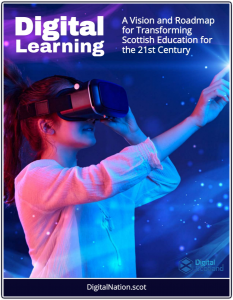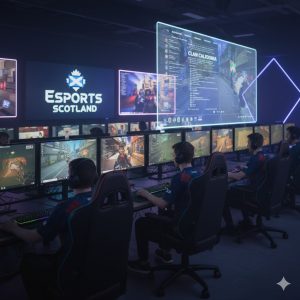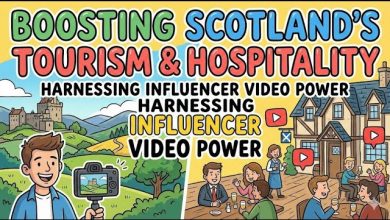Levelling Up Classrooms: Esports as the Next Frontier in Education
As schools and universities seek innovative ways to engage students and prepare them for a rapidly changing future, esports is emerging as a powerful new frontier in education.
 The vibrant, competitive world of esports, once relegated to basements and arcades, is rapidly evolving into a global phenomenon.
The vibrant, competitive world of esports, once relegated to basements and arcades, is rapidly evolving into a global phenomenon.
Far from a mere pastime, professional gaming now boasts multi-million dollar tournaments, dedicated fan bases, and a sophisticated infrastructure that rivals traditional sports.
But beyond the glitz and glamour, a quieter revolution is taking hold: the integration of esports into the educational landscape.
As schools and universities seek innovative ways to engage students and prepare them for a rapidly changing future, esports is emerging as a powerful, unexpected, and undeniably relevant frontier in education.
But is this a revolutionary tool for 21st-century skills or a seductive distraction masking deeper societal shifts? Esports in education demands we confront uncomfortable truths about learning, engagement, and the future workforce.
The Power-Up: Skills Forged in the Arena
Esports isn’t mindless button-mashing; it’s a high-stakes simulator for real-world competencies. Participants master strategic thinking, analyzing opponents’ patterns in milliseconds—mirroring chess grandmasters or business analysts.
Teamwork and communication thrive in titles like Rocket League or Overwatch 2, where voice chats demand concise calls under pressure, fostering leadership and conflict resolution. Intel’s research highlights improved self-esteem, classroom focus, and STEAM interest, with programs like “Beyond Pixel Prowess” turning disengaged gamers into collaborative innovators.
At Edison High School, an esports arena drew 500 students post-pandemic, enhancing grades and leadership. UK’s British Esports offers BTEC qualifications to nearly 10,000 learners, linking gaming to STEM careers. Scholarships from Generation Esports exceed $500,000, proving pathways beyond pixels.
A Curriculum for the Future
Why should esports be part of your curriculum? The world of esports is growing faster than ever, and education is no exception. Schools and universities are now leveraging competitive gaming to engage students, develop transferable skills, and open up exciting career opportunities.
In this session, Andy Payne OBE and British Esports Federation break down the essential curriculum pathways, qualifications, and enrichment opportunities available for educators looking to introduce esports into their teaching.
The initial skepticism surrounding esports in academia is understandable. For many, video games are synonymous with distraction, not development.
However, a deeper look reveals a wealth of educational benefits that align perfectly with 21st-century learning objectives. Participating in esports fosters critical thinking, strategic planning, and rapid problem-solving – skills that are highly transferable across all academic disciplines. Players must analyze complex situations, anticipate opponents’ moves, and adapt their strategies in real-time, often under immense pressure.
Beyond individual cognitive development, esports thrives on teamwork and communication. A successful esports team is a finely tuned machine, where each member plays a specific role, communicates effectively under pressure, and trusts their teammates implicitly.
This collaborative environment cultivates crucial interpersonal skills, leadership qualities, and the ability to work towards a common goal – attributes that are vital in any professional setting. Imagine students honing these skills not just on the sports field, but in a dynamic digital arena where quick decisions and clear communication are paramount.
 ESports in Scotland
ESports in Scotland
Esports in Scotland has rapidly evolved from grassroots initiatives into a burgeoning ecosystem, spearheaded by organizations like Scottish Esports, the national body launched in 2024 as a Community Interest Company to foster competitive gaming through education, events, and international representation.
Pioneering it’s role in Education is the Alva Academy Alliance: This Clackmannanshire trailblazer, backed by British Esports, runs after-school leagues that spiked engagement post-pandemic, much like Shenandoah’s award-winning blends. Students report sharper focus and STEAM interest, with theory units dissecting game economies.
Courses in academia include Dundee & Angus College Foundation Degree: This new 2-year Foundation Degree is the first of its kind in Scotland, and it will help you develop the skills you need to build a career in esports.
PHASE 2025 at Murrayfield: This September spectacle hosts the inaugural Scottish Schools Rocket League Championships, with Borders and Fife qualifiers feeding into finals—blending competition, workshops, and VR demos for 1,000+ attendees, echoing Scottish Games Fest’s month-long push.
Meet Katie to tell you all about Esports!



